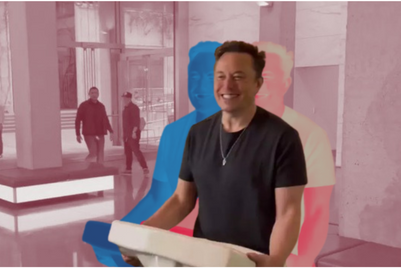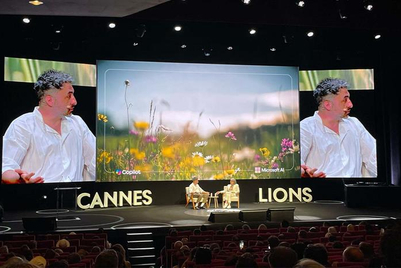
Amid the turmoil of Elon Musk’s $44 billion takeover of Twitter, major brands have begun to pause ad spend on the platform to avoid brand safety issues. But given Twitter’s ad business is less than 5% of rivals’ Meta and Google, is this having a material impact on ad plans?
On Friday (Nov. 4), General Mills, Pfizer, Audi and Mondelez joined General Motors in temporarily pausing ad spending on the platform over concerns about how Musk will alter its approach to content moderation. Twitter’s trust and safety group, the team responsible for content moderation, has been cut by 15%.
Brands are also halting spend as they await more stability among Twitter’s top ranks, after Musk fired top executives including CEO Parag Agrawal and COO Ned Segal. Sarah Personette, the platform’s ad sales chief, resigned last week.
It is estimated that about half of Twitter’s 7,500 employees have been let go since Musk took ownership of the company.
Among major agencies and holding companies, IPG Mediabrands has advised clients to pause spending on the platform until brand safety concerns can be properly assessed.
Campaign US also reached out to Dentsu, GroupM, Omnicom Media Group and Publicis, which all said they are in close contact with Twitter and working to provide guidance and next steps for clients.
“Many advertisers are rightfully concerned about what direction [Musk will] take Twitter in regard to content moderation,” said Kristen Abramo, managing director at Anagram, adding that the agency has advised its clients to pause campaigns on Twitter temporarily. “While Musk has stressed that content policies have not changed since his takeover, the fact remains that he has expressed his intent to make the platform less reliant on advertising.”
We Are Social is also advising brands to reconsider Twitter investments. “We don't believe brands showing up in unsafe spaces is best for them long-term, or for their people and communities,” said Benjamin Arnold, U.S. CEO.
Others are advising clients to reduce or cut spend on a case-by-case basis, depending on their risk tolerance, according to media agency executives that spoke with Campaign US on condition of anonymity.
Meanwhile, Twitter executives have sought to temper concerns by assuring advertisers that brand safety and content moderation remain priorities. Yoel Roth, head of safety and integrity, Tweeted that moderation volumes have been “unaffected” by staff changes.
Here are the facts about where Twitter’s Trust & Safety and moderation capacity stands today:
— Yoel Roth (@yoyoel) November 4, 2022
tl;dr: While we said goodbye to incredibly talented friends and colleagues yesterday, our core moderation capabilities remain in place.
Robin Wheeler, VP of U.S. client solutions, sent an email to agencies and clients on Monday (Nov. 7) reiterating that Twitter’s content moderation approach remains “unchanged.”
Twitter feels pain, but advertisers do not
The pullback has been painful for Twitter, which Musk said on Friday saw a “massive drop in revenue” over the past week as a result of advertiser pauses. In its first earnings report since Musk took over the company, Twitter reported a loss of $270 million year over year.
Twitter has had a massive drop in revenue, due to activist groups pressuring advertisers, even though nothing has changed with content moderation and we did everything we could to appease the activists.
— Elon Musk (@elonmusk) November 4, 2022
Extremely messed up! They’re trying to destroy free speech in America.
But for advertisers, pausing spend on Twitter won’t cause as much of a blow to their businesses.
According to Ashwini Karandikar, EVP of media, tech and data at the 4A’s, it’s likely that more brands and agencies will pause ad spend on Twitter in the coming days and weeks. However, “for the majority of agencies, Twitter is not a media plan necessity, and so there is a higher comfort level on pausing for now until advertisers have more clarity around how the platform plans to move forward,” she said.
Mark Penn, CEO of Stagwell Group, agreed that Twitter is a “relatively small marketplace” compared to platforms such as Meta and Google. Twitter’s ad business brought in roughly $5 billion in 2021, compared to Meta’s nearly $115 billion and Google’s nearly $150 billion ad annual revenue, respectively.
Twitter is not considered a top five media channel, according to one media investment executive. They estimate for every dollar spent on large platforms like Facebook and Google, an advertiser would spend roughly 25 cents or less on Twitter.
Advertiser boycotts of Facebook after the Cambridge Analytica scandal in 2018 and again in 2020 during the #StopHateforProfit movement, as well as when brands pulled off of YouTube in 2017 after finding their ads next to unsavory content, had a much bigger impact on advertiser media plans.
“You have to realize that most clients don’t do a lot of advertising, or any to begin with, [on Twitter],” Stagwell’s Penn said. “Meta and Google are like a hundredfold bigger deal when it comes to advertising.”
The number of advertisers spending on Twitter has been steadily declining over the past six months — from 3,900 in May to 2,300 in August and 2,900 in September, according to a MediaRadar sample of Twitter advertisers. Twitter’s ad revenue growth slowed to 2% in Q2 from 23% the prior quarter.
Martin Sorrell, founder of S4 Capital, shrugged off the impact of Musk’s takeover of Twitter for marketers at Web Summit in Lisbon, Portugal last week, saying that the industry was focusing on the “wrong areas.”
In a July interview with Campaign U.S., Sorrell said that Twitter “gets a disproportionate share of voice because of its nature, its PR value, and the fact that the President used to use it.” But in terms of advertising, “it is pretty small.”
“Has the uncertainty around Twitter caused advertisers to question whether they should be advertising? Yes, I think you'll see that in their numbers. But is that of material importance? No,” he added.
Advertiser pullbacks on Twitter could become permanent, depending on how the restructuring unfolds, the 4A’s Karandikar said. Twitter’s push toward subscription fees could be a sign that the platform is no longer invested in its advertising business the way it once was.
Media buyers expect Facebook and TikTok to profit most from Twitter’s potential demise.
Campaign US reached out to Twitter for comment but did not hear back by publication.


.jpg&h=334&w=500&q=100&v=20250320&c=1)


.png&h=334&w=500&q=100&v=20250320&c=1)




.png&h=334&w=500&q=100&v=20250320&c=1)

.jpg&h=268&w=401&q=100&v=20250320&c=1)



.png&h=268&w=401&q=100&v=20250320&c=1)
.png&h=268&w=401&q=100&v=20250320&c=1)

